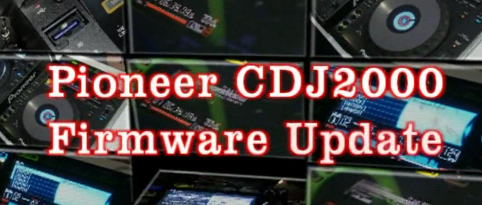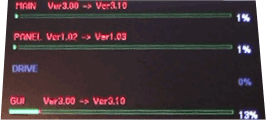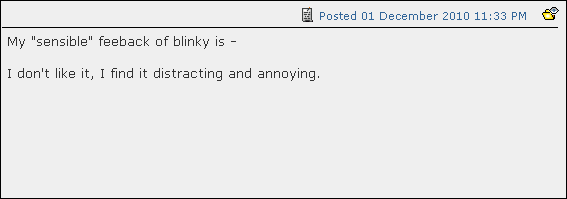Firmware Version: Buyer’s Remorse
For over 2 decades, software has manifested itself more and more in all kinds of hardware. Were once was a mechanical clock in your washing machine, there now is a whole firmware running the washing program and taken care of your laundry. Even your electrical toothbrush or hair trimmer is powered by some kind of software. While one would think that a simple battery and engine would do the job.

The same goes for DJ equipment. Software has become a part of it in all price ranges. From low budget DJ equipment up to the number 1 ranked hardware. What I find interesting is the difference between hardware and software development.
When hardware is being developed, it won’t get released until they are absolutely 100% sure it is working correct. In other words the hardware you buy is the result of many prototypes, testing and revisions. And that makes sense, you can’t send a customer new hardware parts and expect him to replace them. If there is flaw in the product, you will have to recall it which is an expensive operation and has a lot of impact on the users. The hardware has to physically leave the building for a period of time. And on top of that you end up with a damaged reputation. Hardware failures get much more blame then firmware issues because of the different user impact.

When it comes to the software that runs on the 100% working hardware it is a different story. Manufactures appears to find it acceptable if software is working for 99%. They don’t want to delay the product launch and ship 100% hardware with 99% software running on it. That last percentage is acquired through a number of firmware updates after the product launch. Because you can tell a user to download that file, put it on a USB drive and plug it in so that the device gets updated. And most people find this no problem. They see it as free improvements and maybe even great after sales. Probably because they didn’t run into the issues that were still in that last percentage.
This is exactly what DJs experience these days. Firmware updates for you mixer, controller and CD Player are released regularly. DJ equipment manufacturers appear to find it acceptable, having to fix issues post product release through firmware updates.
Of course there is a difference between a firmware update that adds compatibility with other products that at the time of the release weren’t simply around. But even new functionality and product behavior is being changed these days.

I got inspired for this article because of my close interaction with the new Pioneer hardware (CDJ-900/2000, DJM-900/2000). But this article can be applied to probably any DJ hardware manufacturer. Since the release pioneer had a fairly amount of issues with the firmware on these devices. Issues that caused the CDJs to freeze up on tracks at one day and playing those same tracks just fine the next day.
Everybody was going through the forums in search of a solution or a new firmware update that would solve the issues. New firmware updates arrived and people installed them right away, finding them self in sometimes even worse scenarios.
My advice would be to always plan and carefully test firmware updates, especially if you need to use the hardware for performing live. Make sure you have enough time for testing and even have a fallback scenario in case it fails. One fallback scenario could be reverting back to a known stable firmware version. If you have more of the same devices, first update only one. In that way you can test the differences and make sure that whatever you encounter is actually caused by the new firmware version.
Also, give it just a little while and keep an eye on support forums. There is always a group of early adopters who rush the new firmware and start testing it to the extreme. They will definitely give feedback on the forums and might be saving you a lot of time en troubles.
Besides the issues Pioneer had in there firmware, they also added new features. On the CDJ-2000 they added support for not only loop cutting but also loop extension. Later on they added visual information on the display about the exact loop size and you could select it even through the needle search strip. So far everybody was happy with the new additions.
Another addition by Pioneer was the BPM decimal they added. I liked it since it could allow you to blindly and thus quickly pitch a track to the correct speed. Can be very useful for an acapella. Apparently there were also DJs who didn’t liked this at all and spit there dislikes about the new firmware on the Pioneer forum.

Later Pioneer made more small changes in the firmware of the CDJ making the Link button blink. Again people were venting their likes and dislikes about the change. To me this is still a small change which doesn’t have large influence on the core functionality of the product. But the story continues.

On the DJM-2000 pioneer recently changed the volume of some effects. It was arguable that the original volumes were a little too quiet, but this time Pioneer overdid it. Keeping the meters out of the red became suddenly almost impossible when applying certain effects. You probably already guessed, people where not happy with this change again.
Interesting about these changes is that people started to make comments like: this is not the product that I initially bought. I want my money back!
You may judge that this is a somewhat childish reaction but on the other hand there seems to be an issue here. Pioneer is indeed changing a product after it has been released. Some of these changes cannot be considered minor and have a certain influence on how the product can be used. Not installing the firmware updates is not an option because you could be stuck with a blocking issue that is solved in a firmware update that also involves other changes. Do you then have the right for getting your money back? A custom firmware for everyone? Does Pioneer or any manufacturer even warn through a disclaimer that the actual behavior of the product might change in the near future? Is this covered by the law or is there any jurisprudence?
I don’t know the answers to these questions. What I do know is that these are factors to consider before buying a product. Some vendors might have a better reputation then others. I hear a lot of love about the firmware updates of Denon which mostly add support for new hardware or software. Important is to think it through, before you find yourself updating to firmware version buyer’s remorse.
Trackback from your site.